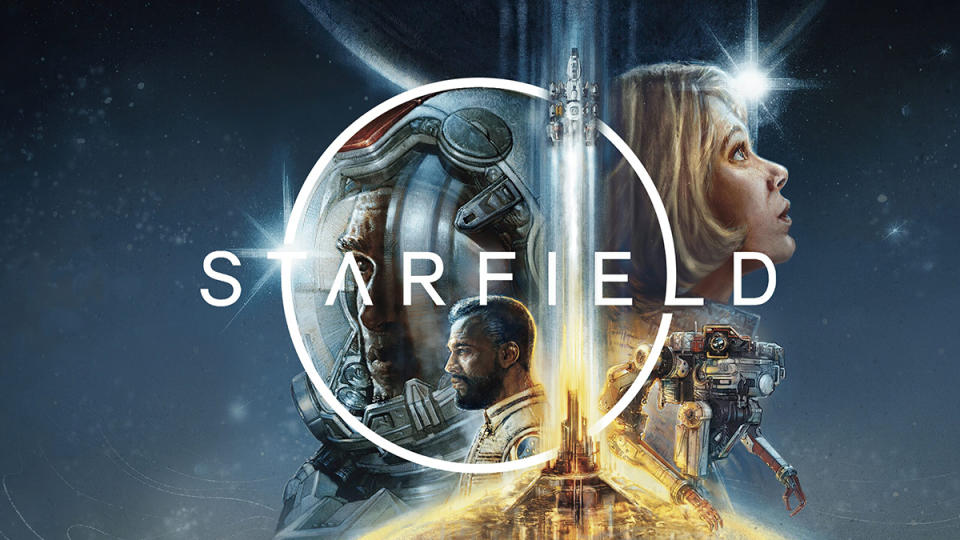Inon Zur on creating the soundtrack for Starfield: “I composed a whole main theme with lots of versions that we were pretty happy with. And two years later, Todd Howard says, ‘You know, I like it… But I don't love it.’ Boom. Back to the drawing board”
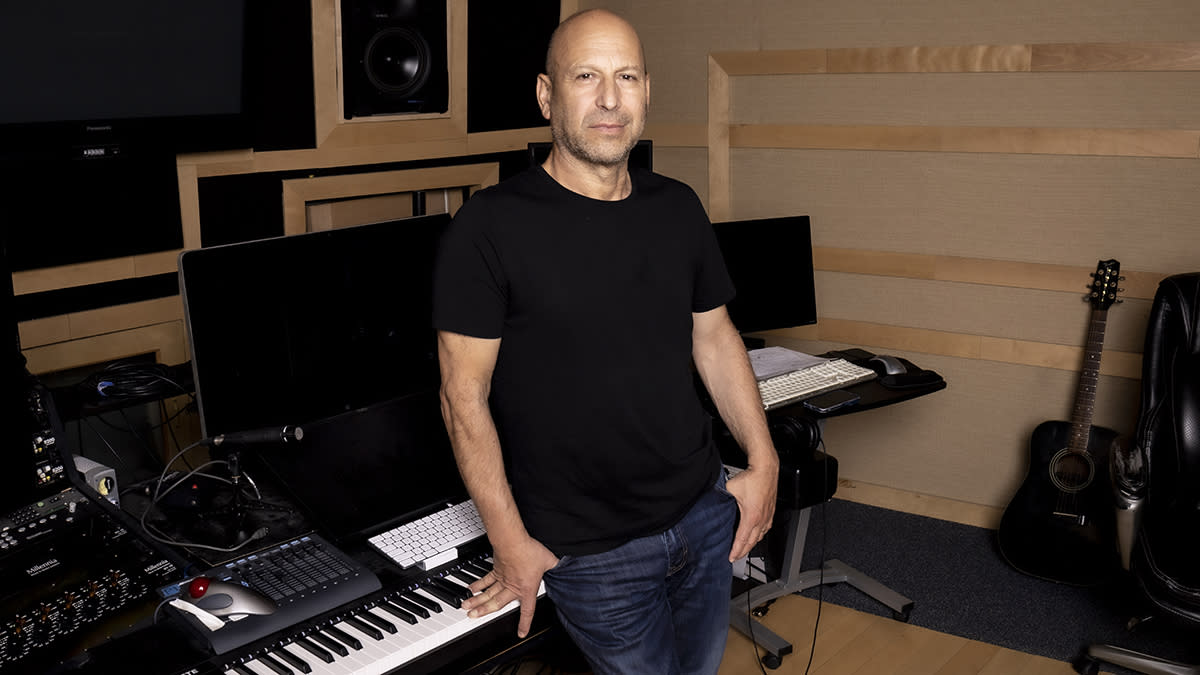
- Oops!Something went wrong.Please try again later.
With games eclipsing both the movie and music industry in terms of audience size and profits, crafting the perfect soundtrack for the year’s BIG game has never been more important, or a gig that’s harder to win.
But in the world of game composers there’s one name that stands out. Emmy Award-winner and three-time BAFTA-nominated composer Inon Zur is internationally renowned for his emotional and dynamic scores for blockbuster game franchises including Fallout, Dragon Age and Prince of Persia, among others. So when it came to crafting the score to soundtrack Starfield, Bethesda’s eagerly awaited 25-years-in-the-making space-age blockbuster, there was only one man to call. And in a collab with Imagine Dragons on the single Children of the Sky, the worlds of music and gaming have never orbited each other so slickly.
We caught up with Inon in his studio in Encino, California to discuss the delicate art of soundtracking a universe.
Do you do all your writing and recording in your studio?
“Yeah, this is where the whole thing happens. I also have a recording room here that could take up to eight or 10 musicians. I have new musicians here to get some live experience. But in most cases I'm travelling, either to Europe, or close to here to work with the bigger orchestras.”
I'm intrigued as to how one even begins working on a project like Starfield? What kind of brief do you get for something so big?
“I could give you the brief right now.”
Go for it.
“It was 2016, February, I believe, and I was summoned to the castle of Mr Todd Howard [director and executive producer at Bethesda] and he said ‘I'm thinking about a space game. It's going to be an exploration game, but also very philosophical. And it's gonna be huge. You can do anything you want, time or distance are not considerations. You are going to be under some kind of danger, but most of all, you will discover many things all the time… Go…’"
It's a suitably epic space-age score. We were inevitably reminded of things like Jerry Goldsmith’s Star Trek: The Motion Picture score.
“It’s like John Williams once said, ‘Oh, of course, I copy, but I'm copying from the best!’ I don't think I'm copying but I’m very happy to be influenced and, of course, obviously, I'll always add my own personal juice.”
But while the Goldsmith score for Star Trek is quite naive - it's very confident, and very optimistic - your Starfield score has a lot more wonder, and worry and danger in there. How would you describe it?
“I wouldn't say danger, or worry. What I would say is that it’s very inquisitive. Very curious, sometimes unsure. That’s the combination. I would say that there are three components: The awe element. The danger element. And the excitement element.
“And they almost go in order. You're being thrown into space or a new planet. That’s the first thing - you're in awe. Second thing, you are scared, because it's an unknown territory. But then you are excited, because you know that the possibilities overcome the dangers. And so between these three components, it all goes hand in hand.
The interesting thing is that if you take these three chords, and play them together - just mash them and play together - you get what I call the ultimate space chord!
“If I go a little bit deeper, philosophically, into this score, there are two main musical components. If you notice, this theme starts with the horn that plays a melody, but right after, instead of bringing in the theme… No. There are three chords. So, here are your three elements. This is the real theme for Starfield. The interesting thing is that if you take these three chords, and play them together - just mash them and play together - you get what I call the ultimate space chord! It is like these three elements being put together. That’s just a little bit of how I went about it.”
I'm wondering how much of the game you get to see before you start writing. Do you get to see anything at all?
“It’s very interesting. I would say yes and no. The ‘no’ is I don't get to see any gameplay. They’re keen to keep me away from anything that will clip my wings. They want to give me as much creative freedom as they can, and they're afraid that if they give me something specific, then I'll be bound to it and it will shrink the amount of directions I could go with.
“This is Todd’s philosophy. And I respect that. And I love it. Instead I get a lot of files of concept art. They're going out there and they're shooting deserts, oceans, whatever they think that we're going to see after it's been manipulated. But I get that unedited, and raw. I get what the concept artists are going to see and so I know what the player is going to feel. So do I get gameplay? No. But do I get something to work with? Definitely, yes.”
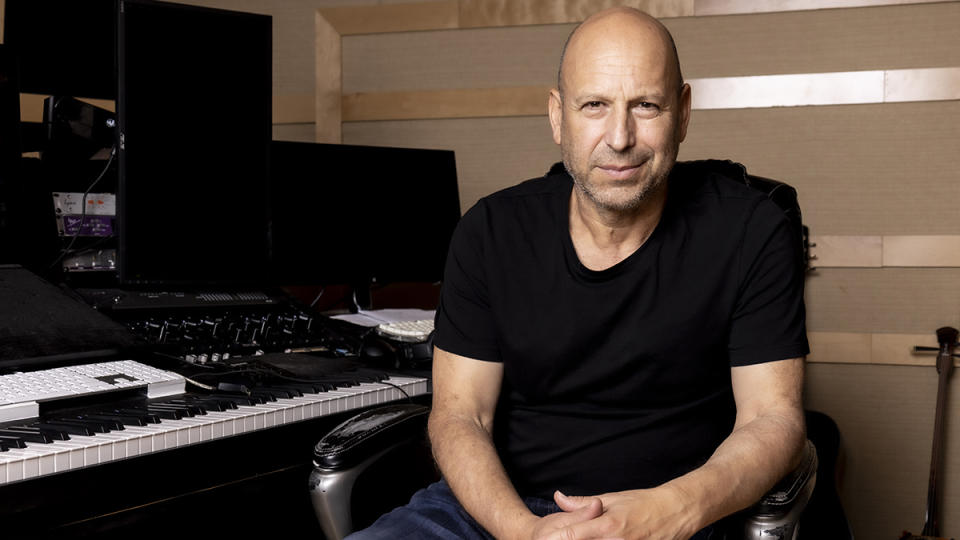
Video games famously have terrible, crushing deadlines. Do you feel like you get enough time to do what you want to do?
“How about seven years?”
Ah, yeah… Well… That's obviously pretty good. You did say that you started out in 2016…
“Well, you know, I'm going head to head with the development. So there’s going to be months that I'm not going to be working because there's nothing for me. As you know, a game has some other aspects other than music, so maybe they need to work on that… But when they're ready for the next batch, then I'm being called in.”
Music always seems such an important part of Bethesda’s games…
“That’s another of Todd's little secrets. He will always start with the music. Two things come first: music and story. Before you have heroes, before you have art… That’s why the music in his games is so seamless, and so organically part of the game. His concepts are so genius, right? That helps me as a composer to bring out the best of me. Because A, he gives me all this time to develop with the game. But B, he gives time for the music to ‘grow inside’ the game while people are working on it. So everything grows together. It's a very different way of thinking, but as we know, Todd is a visionary.”
I'm interested as to how you submit your audio? Is it just two track audio that you’re supplying?
“Good question. So there are three ways of submitting music. One way would be, say, a five-minute exploration track. This works very well in Bethesda games. You play the music, and the player could just wander around, soak in the amazing view and with that, the music. You don't need to manipulate the music or create any kind of sophisticated integration.
“The second way that I'm delivering music is in very short 15-second bursts. So if you're just wandering and hear the sound effects - maybe water, maybe animal voices or something - and suddenly - boom - you hear 15 seconds of music that will give you some kind of an emotional element.
“Or I will just deliver stems that the audio director will take and work with and this is a little bit more sophisticated, and it happens here or there. Sometimes even variations, meaning you take the same cue and create very low intensity, mid intensity and high intensity. So believe me, this game has it all.”
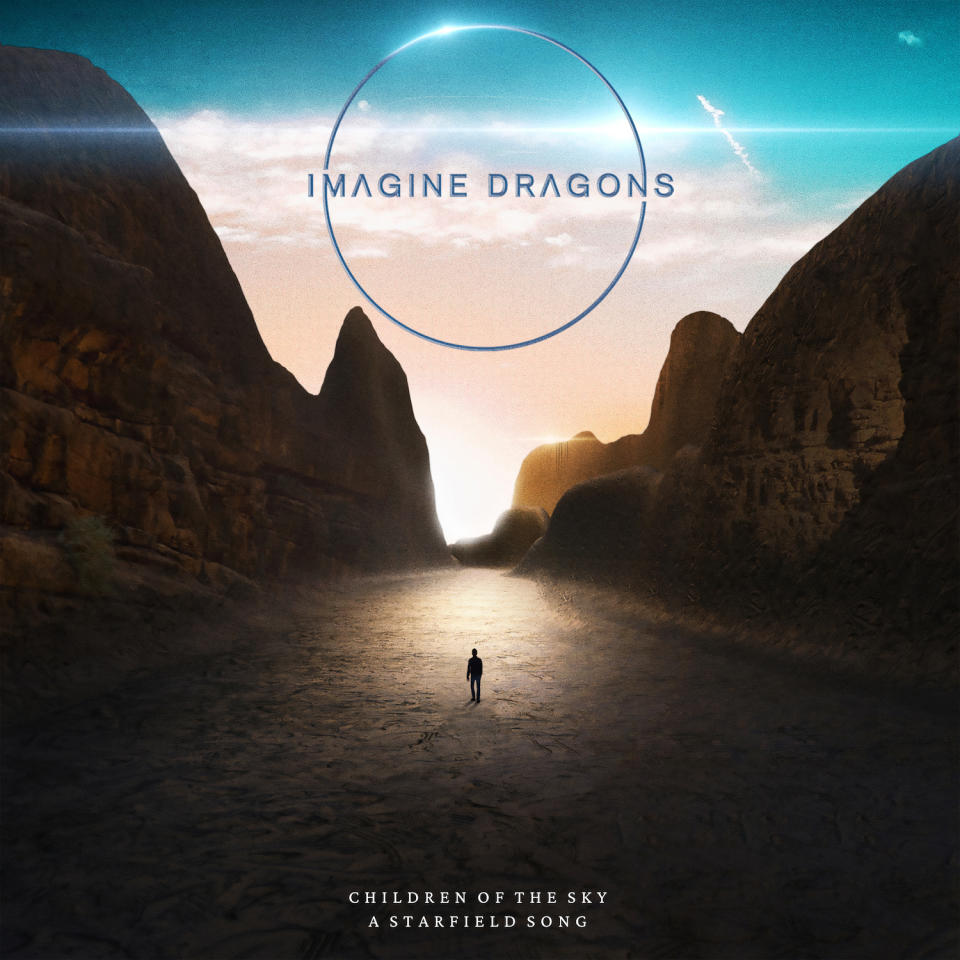
We can only imagine the complexity of working with a game this size. We’re imagining you on the hook for delivering 14,000 separate stems or something like that.
“No, no, I actually, really try not to deliver for each cue. So I will take, let's say, brass and woodwinds, strings, percussion and voice. And then you could take each step, each step is a stem that could stand on its own. There’s no need to be a complete piece of music. So you could play from, from top to bottom, with no interference, and it'll still make musical sense. So this is why I don't really deliver more than five steps. Or maybe six, at the most.”
What's your primary tool for composition? Are you playing a keyboard? Sitting at a computer?
“Yeah, of course. I'm working with my DAW which is Steinberg Cubase and I'm working on a keyboard like 98% of composers today. There are a few other programmes like Logic or Digital Performer or others, but all of us are pretty much doing the same. Composing on some sort of sequencing software.”
Are there any favourite sound libraries that you lean on? Anything you're using particularly on Starfield?
“My favourite sounds are the ones that I'm actually creating myself, or are being created for me, based on the sounds of the game. I have a team and they’re playing and creating sounds that are original, that are made out of elements.
“It's very weird the way I'm doing it, but I'm giving sounds to them and they're building my own dedicated sound libraries, but I only use them in about 10% of the cue. I can use standardised libraries for the rest. There are amazing sound libraries - strings, brass, woodwind, percussion and the rest. I’m using them all. But on top of that I’m using 10% of my own original soundscape. And suddenly, it sounds totally different.
“Suddenly, there is something that you hear there and you've never heard before in your life. And, specifically for games like Starfield, where we are in uncharted territory, or we are deep in space, or we're on planets thousands of light years away from here, these elements play such an important role in the score. When they're being played above or as part of something that you know - like a string, brass - it makes it stand out even more.
I always say, when you write music, ‘Tell me something I know, and tell me something new.’
I always say, when you write music, ‘Tell me something I know, and tell me something new.’
So you map everything out in the studio with a keyboard, all inside the computer. Do you get to re-record it with an orchestra?
“If the cue is mainly orchestral I will arrange it, and organise it for orchestration, and send it over to my orchestrator, and he's going to create the score. And then I'll go somewhere and conduct an orchestra and record. However, there are some cues in Starfield, for example, that I didn't need that because it's more synth-based. So then it all happens over there [gestures towards his studio].”
You must love it when you compose something inside the box and then you get to record with a real orchestra.
“Oh, it’s magic.”
And you always conduct yourself, as well?
“Yes. I found out that most conductors will do a better job than me because I am not a professional conductor, but when I'm conducting my music, I can insert my intention and share it with the musicians in a better way, rather than having to explain to a professional conductor. Musicians are patient creatures. They will occasionally accept me the way I am, and not criticise too much!
“There's a lot of advantages to just sitting in the booth because, when you're conducting, you don't hear everything. In the booth, during the session, you hear everything because the microphone picks up everything, which you won’t necessarily hear in the actual recording room. And some composers actually are keen on being there to pick that up.
“So I'm not saying there are better ways to do it, because there are advantages there. But I prefer the emotional route. Details are important, but more important for me is the main emotional premise. And this I can only instill when I'm standing on the podium and conducting.”
I'm intrigued by the moment where you reveal your soundtrack to the owners of the project. Do you bring them to your studio and play them the score? Or…
“No, no, no, no, I send the music out there. To Bethesda people, or other people that I work with. They never come here. I compose the music, send it to them and they say ‘great’ or ‘horrible’ or something in between.”
Do they ever say ‘that's perfect’?
“Rarely… Let's say 70% of the time, they'll say ‘OK, it's pretty good’. And they give me a series of fixes and stuff and three or four versions later we are in there. But ‘Into The Starfield’? That’s version 29… And the Starfield theme is actually the second theme I composed…
You started again?
“I composed a whole main theme with lots of versions that we were pretty happy with. And two years later, Todd says, “You know, I like it… But I don't love it.” Boom. Back to the drawing board. Interestingly enough, that original main theme is still being played in the game here and there. But that’s how it goes.”
So Todd says he likes it, but doesn't love it? You want him to love it? So you go back to the drawing board?
“Yeah. There's no other way. Especially not with Todd.”
You’re not going to be able to convince him? Just say, ‘No, no, trust me’?
“This is something I never do. I know, some other people may be like that, and I can't blame them because they're musicians and composers, and they write something and they're being criticised. They fall in love with it, but they stop being objective. So they try to convince the producers…
“I could never do that. It could eat me from the inside, because I’m also a human being. I could tell myself, ‘Wow. I think this could have been a good thing!’ But I must be honest with you. After 25 years of working in this industry, 90% of the time, the non-musician judges are actually right.”
They can judge the music better than you can?
“Because their call is more representative of the regular people - people who are not composers, or who are not musicians - and I've learned to trust them. One of Todd’s gifts is his ability to bring himself to the level of someone who has never played the game, or never heard the music, and hear things the way that they will hear. The judgement tools that he uses really are something that are trustworthy. And that's why I never tried to convince anybody that something is great.”
I know some genius composers. Amazing. And I will tell you flat out that I think that they're better than me. But it's just really difficult to work with them.
I guess that's a talent in itself. But why do you think that people come to you? What is it that's unique that you can deliver?
“I think I'm a nice person. [laughs] Look, yeah, it's a joke, but I know some genius composers. Amazing. And I will tell you flat out that I think that they're better than me. But it's just really difficult to work with them - to extract from them, meet the deadlines… And collaborating with a team. Listening and not just bringing their own take? Or being ‘the artsy guy’? It's very, very difficult.
“Why are people coming to me? Sometimes it's based on previous work. They like what I did. But I'm known in the industry as somebody that is really cooperative, collaborative, who delivers always on time on budget, and I’m easy to work with. And people like that.”
And games people love a deadline…
“OK. Let’s say you're giving a composer a deadline. And that deadline is two weeks. So he makes the deadline and delivers the piece in two weeks, on the last day. He made the deadline, right?… I will always deliver it after three days and that gives me another 10 days, or 11 days for fixes or adjustments. If you deliver it at the end of the deadline, you won't be able to fix it because you need to move on.”
You must have multiple projects in play at any one time. Is there anything you can tell us about that you're working on right now? Or is it all top secret?
“I would say it’s all top secret.”
OK. Tell me about working with Imagine Dragons on their song, Children of the Sky. How did that collaboration come about?
“When that opportunity was created, I was thrilled. I’ve loved them since they first came up and the combination of Dan’s amazing voice and their musical originality always hit me as something that is very unique. They have a profound signature. They never really follow any path which is why they're so successful for so many years.
“Dan Reynolds and Mac, his brother who is their manager, are huge gamers. And they were very excited about Starfield and excited to create something for Starfield. So it wasn’t like, ‘let's go and get ourselves an amazing band and throw them in.’ No. That couldn't be further away from the truth. It started very, very organically as they adored the idea behind Starfield and we adored their style and knew that it could work so well within the universe of Starfield.”
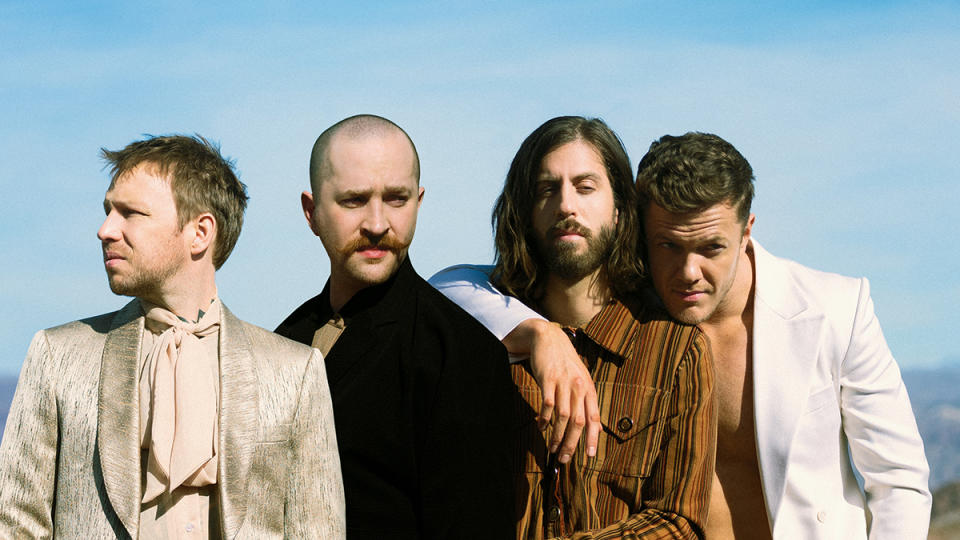
And they used your score for inspiration?
“So when they created the song it had no Starfield music inside. But I heard so much promise in it. And they're not known for their ballads. They make very hyper songs, very, very powerful and rhythmical songs. But when they created that ballad, I was taken away because inside the harmony I already heard the Starfield theme, even though it was not there. It was there all the time. So all I had to do was just sort of fill in the blanks…
“So they sent me the song and I inserted the orchestra and the Starfield theme. They didn’t have to do anything. I was just there all the time. With the melody and with the harmony. And so this is such a ‘meant to be’ song for Starfield. I attribute it to their deep understanding of the emotional aspects behind Starfield. I think it was one of the easiest and most joyous collaborations that I’ve worked on.”
Tell us about the process of adding your music into the game
“So, I went to Bethesda and we played the game together. That was really crucial. Mark Lampert, the legendary audio director for Bethesda, has a huge part in that score being that successful. He is the one that gives the fixes, the adjustments on the in-game music, but also, more than that, he is the one who places the music and works the music inside the game. So the musical magic is actually 50/50. I’m not taking more than 50% of the credit on the success of music in the game. Because it's 50% writing the music, but then it’s 50% placing it in the right moment, mixing it right, and working it inside the game. And that's what Mark Lampert is doing so successfully. I think that these amazing people are a bit overlooked, and not being given the proper credit. Audio directors, they have such a huge part in the success of a score.
After the game came out I’ve been so busy with all the aftermath, and everything. So I haven’t had one minute to play the game!
If I was a composer, I would want all my great music in the first 20 minutes. I’d just say, ‘I've worked so hard on this, I want it all up front so that nobody misses it’.
“One of the things that people don't understand is that if you take the ego component, and direct it into the creative process, towards where you want to proceed, then you do yourself and the community a huge favour. You have to understand that there are two components that are going against ego. One of them is that music in the game should not be noticeable - you should not notice the music… You should feel the music. Music should enhance your emotions. This goes against the instinct of the usual composer who wants his music to be noticed. But if it's noticed, you actually failed.
“The second thing which goes against ego is that you have to collaborate. You have to be able to get criticism so when people say to you ‘It’s cool, but it doesn’t really work’ then you’ve got to change it. You are a team player.
“So if you understand these two things - you take your ego, and just leave it out there - then this helps you to create a better piece of music. You're part of the process. I found out that this has really helped me throughout the years to create effective scores for video games.”
So what do you think of Starfield, now that it’s complete? Have you played it much?
“I wish! So we played the game. And I was like, wow, going all crazy! You know? Jumping from place to place… I just couldn't stop. But then I felt like ‘Hey, how about we'll take this part of music, and move it here?’ And Mark said ‘Well, let's try it’. So we started bouncing things around. And that was such an awesome process.
“After the game came out I’ve been so busy with all the aftermath, and everything. So I haven’t had one minute to play the game! But I think it's going to happen over the winter break.”
